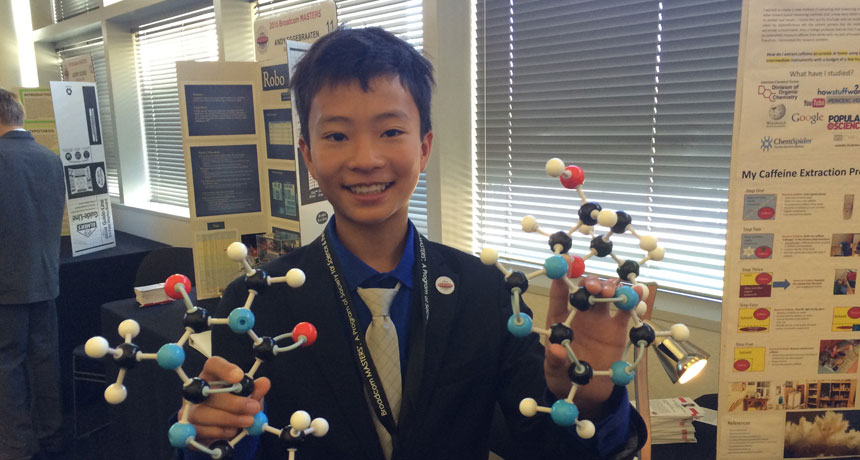Bring kids to the Broadcom MASTERS with a mini grant
Qualifying groups can get up to $500 for transportation and lunches for students

Max Du, a Broadcom MASTERS finalist in 2015, shows off some chemical structures he put together.
B. Brookshire/SSP